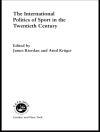This volume presents Martin Luther’s contribution to the modern economic sciences, providing a detailed introduction and revised translation of his major pamphlet on economic matters, ‘On Commerce and Usury’ (‘Von Kauffshandlung und Wucher’, 1524). In his teachings on indulgences, Luther picked up on the question of hoarding money, and was among the earliest voices in early modern Europe calling for an ‘ethical’ economics. Luther‘s work prefigured many later contributions to modern economic theory, from the mercantilists and cameralists to the German Historical School.
Daftar Isi
Acknowledgements; CRITICAL INTRODUCTION: 1. Approaching Luther; 2. Contextualizing Luther: The Powers of Time and Space; 3. Luther: Impulsive Economics; 4. The Grip of the Dead Hand: Crisis Economics for a Pre-Industrial Society? 5. Von Kauffshandlung und Wucher (1524): Analytical Summary; 6. Conclusion: What Can We Learn from Luther Today?; ON COMMERCE AND USURY (1524): Notes on the Text; On Commerce and Usury; Bibliography; Index
Tentang Penulis
Martin Luther (1483–1546) was a German friar, priest and professor of theology who was a seminal figure in the Protestant Reformation.
Philipp Robinson Rössner is Lecturer (Assistant Professor) in Early Modern History at the University of Manchester.












